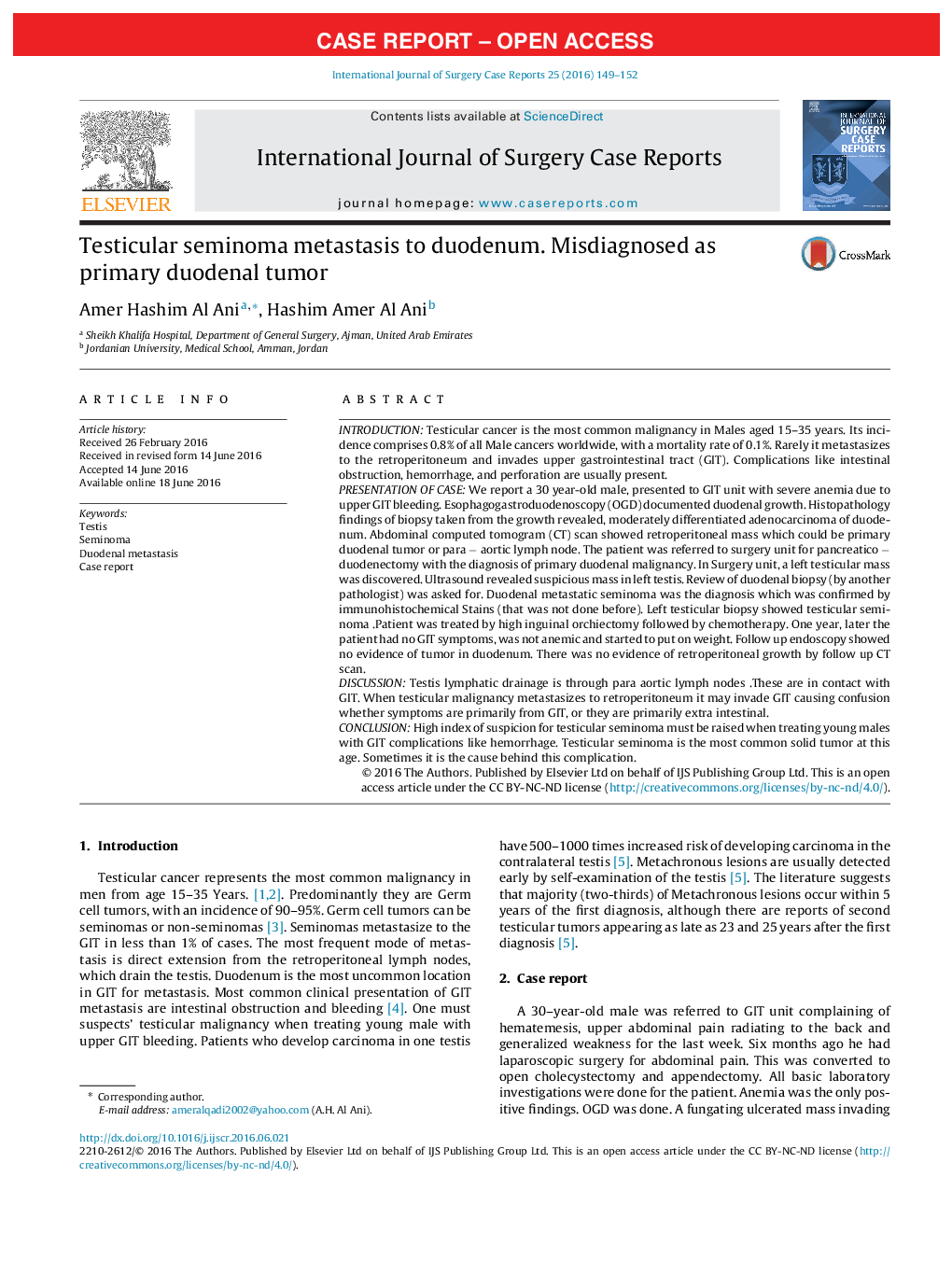| Article ID | Journal | Published Year | Pages | File Type |
|---|---|---|---|---|
| 4288427 | International Journal of Surgery Case Reports | 2016 | 4 Pages |
•Testicular cancers are the most common malignancies in men aged 15–35 years.•Testicular malignancies rarely metastasize to retroperitoneum and involve upper gastrointestinal tract.•Testicular cancers may cause upper gastrointestinal tract complications, including: ulceration of bowel mucosa, hemorrhage and intestinal obstruction.•Radical orchiectomy, followed by chemo-radiotherapy is the standard treatment of testicular malignancies.
IntroductionTesticular cancer is the most common malignancy in Males aged 15–35 years. Its incidence comprises 0.8% of all Male cancers worldwide, with a mortality rate of 0.1%. Rarely it metastasizes to the retroperitoneum and invades upper gastrointestinal tract (GIT). Complications like intestinal obstruction, hemorrhage, and perforation are usually present.Presentation of caseWe report a 30 year-old male, presented to GIT unit with severe anemia due to upper GIT bleeding. Esophagogastroduodenoscopy (OGD) documented duodenal growth. Histopathology findings of biopsy taken from the growth revealed, moderately differentiated adenocarcinoma of duodenum. Abdominal computed tomogram (CT) scan showed retroperitoneal mass which could be primary duodenal tumor or para − aortic lymph node. The patient was referred to surgery unit for pancreatico − duodenectomy with the diagnosis of primary duodenal malignancy. In Surgery unit, a left testicular mass was discovered. Ultrasound revealed suspicious mass in left testis. Review of duodenal biopsy (by another pathologist) was asked for. Duodenal metastatic seminoma was the diagnosis which was confirmed by immunohistochemical Stains (that was not done before). Left testicular biopsy showed testicular seminoma .Patient was treated by high inguinal orchiectomy followed by chemotherapy. One year, later the patient had no GIT symptoms, was not anemic and started to put on weight. Follow up endoscopy showed no evidence of tumor in duodenum. There was no evidence of retroperitoneal growth by follow up CT scan.DiscussionTestis lymphatic drainage is through para aortic lymph nodes .These are in contact with GIT. When testicular malignancy metastasizes to retroperitoneum it may invade GIT causing confusion whether symptoms are primarily from GIT, or they are primarily extra intestinal.ConclusionHigh index of suspicion for testicular seminoma must be raised when treating young males with GIT complications like hemorrhage. Testicular seminoma is the most common solid tumor at this age. Sometimes it is the cause behind this complication.
